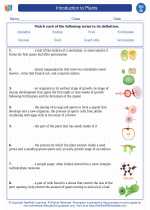Evaporation
Evaporation is the process by which a liquid turns into a gas. This occurs when the molecules in a liquid gain enough energy to break free from the liquid and become a gas. Evaporation is a crucial part of the water cycle, where water from the Earth's surface, such as oceans, lakes, and rivers, is heated by the sun and turns into water vapor. This water vapor then rises into the atmosphere and eventually condenses to form clouds and precipitation, completing the water cycle.
Several factors can affect the rate of evaporation, including temperature, humidity, surface area, and air movement. Higher temperatures and lower humidity levels generally result in faster evaporation, while increased surface area and air movement can also accelerate the process.
Study Guide
- Definition: Define evaporation and explain its significance in the water cycle.
- Factors Affecting Evaporation: Discuss the factors that influence the rate of evaporation, including temperature, humidity, surface area, and air movement.
- Applications of Evaporation: Explore real-life applications of evaporation, such as in the drying of clothes, the cooling effect of sweating, and the operation of cooling towers in power plants.
- Measurement of Evaporation: Explain methods used to measure the rate of evaporation, such as the use of evaporation pans and Class A evaporation pans in meteorology and agriculture.
- Evaporation and Climate Change: Discuss the potential impact of climate change on evaporation rates and the water cycle.
Understanding the process of evaporation is essential for comprehending the water cycle, weather patterns, and various practical applications in daily life and industry.
.◂Biology Worksheets and Study Guides High School. Introduction to plants
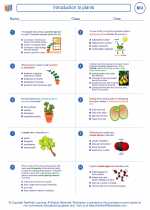
 Worksheet/Answer key
Worksheet/Answer key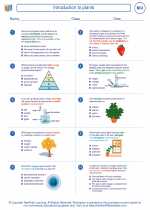
 Worksheet/Answer key
Worksheet/Answer key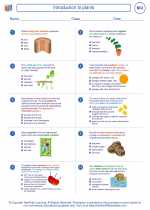
 Vocabulary/Answer key
Vocabulary/Answer key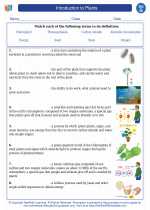
 Vocabulary/Answer key
Vocabulary/Answer key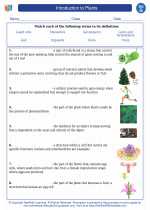
 Vocabulary/Answer key
Vocabulary/Answer key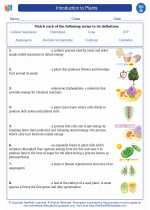
 Vocabulary/Answer key
Vocabulary/Answer key
 Vocabulary/Answer key
Vocabulary/Answer key